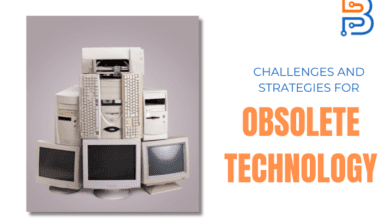What Are Managed IT Services and What Benefits Do They Offer?

Businesses are increasingly using Managed IT Services to manage their complicated virtual infrastructure. Managed IT services are a smart way to optimize operations and overall performance. This article asks: What are managed IT services? IT infrastructure renovation, tracking, and management are outsourced to expert provider vendors in controlled IT services. Benefits encompass advanced cybersecurity and proactive machine protection. This article discusses Managed IT Services and the way they preserve, optimize, and stabilize an organization’s IT environment.
What are Managed IT Services?
Managed IT services let companies outsource IT work to third parties and focus on core operations. These services include migration, implementation, maintenance, and updates of IT infrastructure, monitoring and managing servers, networks, applications, and security proactively. Remote monitoring and maintenance (RMM) software and cybersecurity are usually included in managed IT services.
Benefits of Managed IT Services
Businesses can greatly benefit from Managed IT Services, which can increase their efficiency and boost their overall success. Here are a few important benefits:
Single point of contact
The single point of contact, also known as SPoC, is the person or department within your organization responsible for handling all client requests. A good SPoC will help you keep your company’s communication channels open, improving productivity.
An effective SPoC can help you establish a strong business relationship and provide service that your clients will appreciate. In addition, an effective SPoC can help establish trust with your clients.
A good SPoC will be trained to communicate effectively and proactively. This will help ensure that your employees will be able to resolve problems with ease. Ideally, your staff will be able to turn frustrations into positive experiences.
An effective SPoC will also help your clients promptly get the information they need. Rather than waiting for a status report, your customers will be able to track the progress of their tickets and have confidence that they will be helped promptly.
Scalability
Scalability is an integral part of managing a managed IT service. Using scalable solutions and systems helps reduce downtime and eliminates issues before they arise. Moreover, scalable services allow businesses to focus on what is essential. This can lead to better efficiency and a higher bottom line.
Scalability is essential because it helps an organization adapt to changes in its workload. It also indicates a company’s ability to grow and remain competitive. While this concept is not new, it has become more relevant in recent years. With the development of technology, it has become more feasible to scale up.
MSPs need to consider scalability if they are to remain competitive. They must be able to accommodate increasing service demands and keep costs down. Adding scalability to their managed IT service can help them achieve their goals and prepare for future growth.
Cost-effectiveness
Investing in a managed IT solution can be a smart move. Using a service provider will alleviate the headaches of maintaining many vendors. They can also provide the lowest rate for your equipment, saving you money.
A managed IT service can also offer specialist skills. You can invest in a cloud-based solution, which will allow you to scale your business as you grow. This type of service is often cheaper than hiring full-time IT staff, as well.
Another good reason to invest in a managed IT solution is that it will make you more productive. An effective IT department can achieve all your goals while minimizing downtime. Some businesses have to cope with spikes in customer requests, which require more bandwidth.
Expertise
Managed IT services offer businesses an expert solution to technology maintenance. These companies have the knowledge to prevent downtime and keep data secure. They also understand regulatory and compliance concerns.
Choosing the right plan is essential. You’ll need to remember how your business will develop and how the environment will change. For example, if your organization is dealing with heightened cyber threats, you will need a controlled service provider that can help you respond.
Businesses can pick out between subscription offerings and completely controlled offerings. Both models will let you outsource your IT desires, however with exclusive blessings.
Fully managed services provide a complete service package that includes all the necessary era, hardware, software program, and help. With this provider, you could loose up your inner assets and have peace of thoughts. It’s also plenty less expensive than hiring a separate crew to provide these offerings.
Technology solutions
It can assist small and medium business get the most out of their generation. When a business enterprise outsources its IT duties, it can free up the in-residence crew’s time to attention on extra revenue-generating activities. This helps them grow and achieve their business goals.
A well-managed service provider will have a range of technology solutions to offer. One of the most useful is a detailed technology roadmap that will help them align their tech with their goals.
Another is the ability to monitor and maintain your technology. For instance, a managed services provider can keep an eye on your system to detect any irregularities, which can help prevent them from causing any damage.
A managed service provider can also provide a more comprehensive range of support than an in-house team. For example, a managed service will be able to monitor and troubleshoot a variety of devices.





